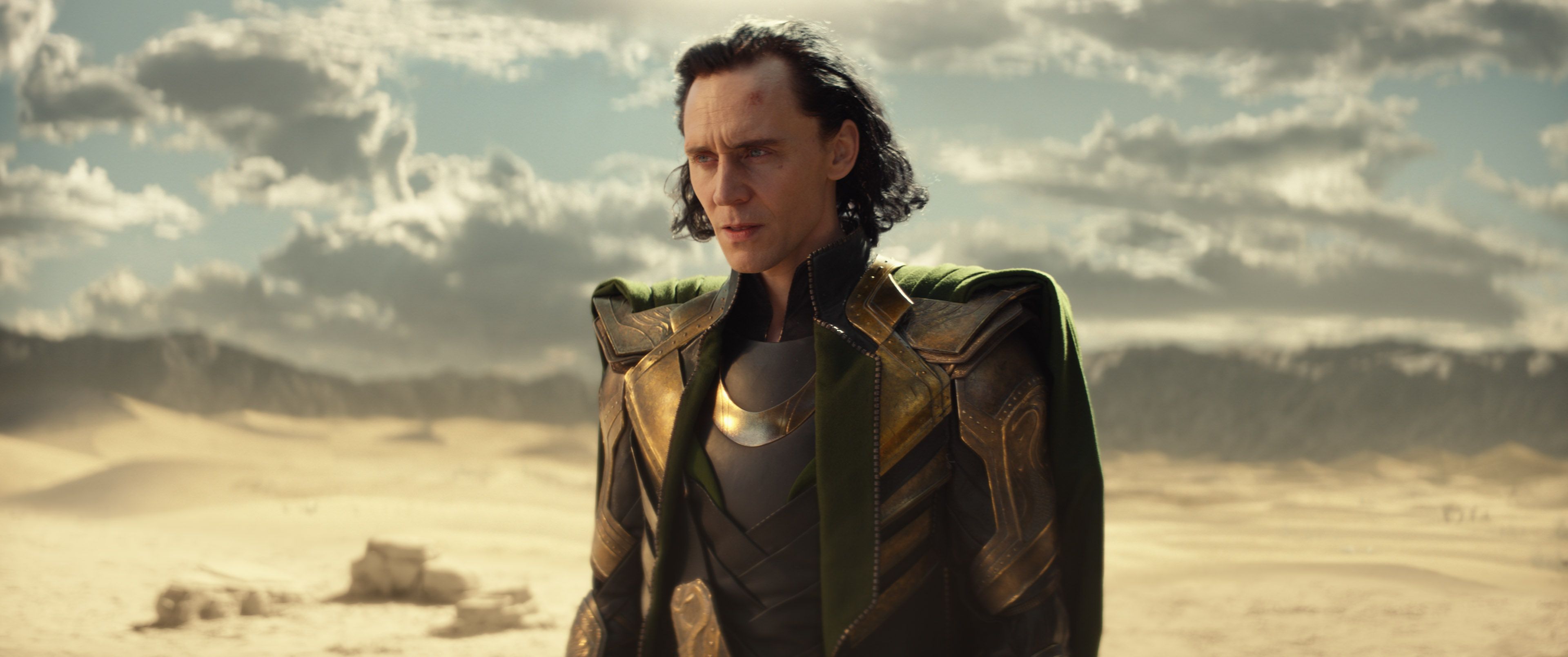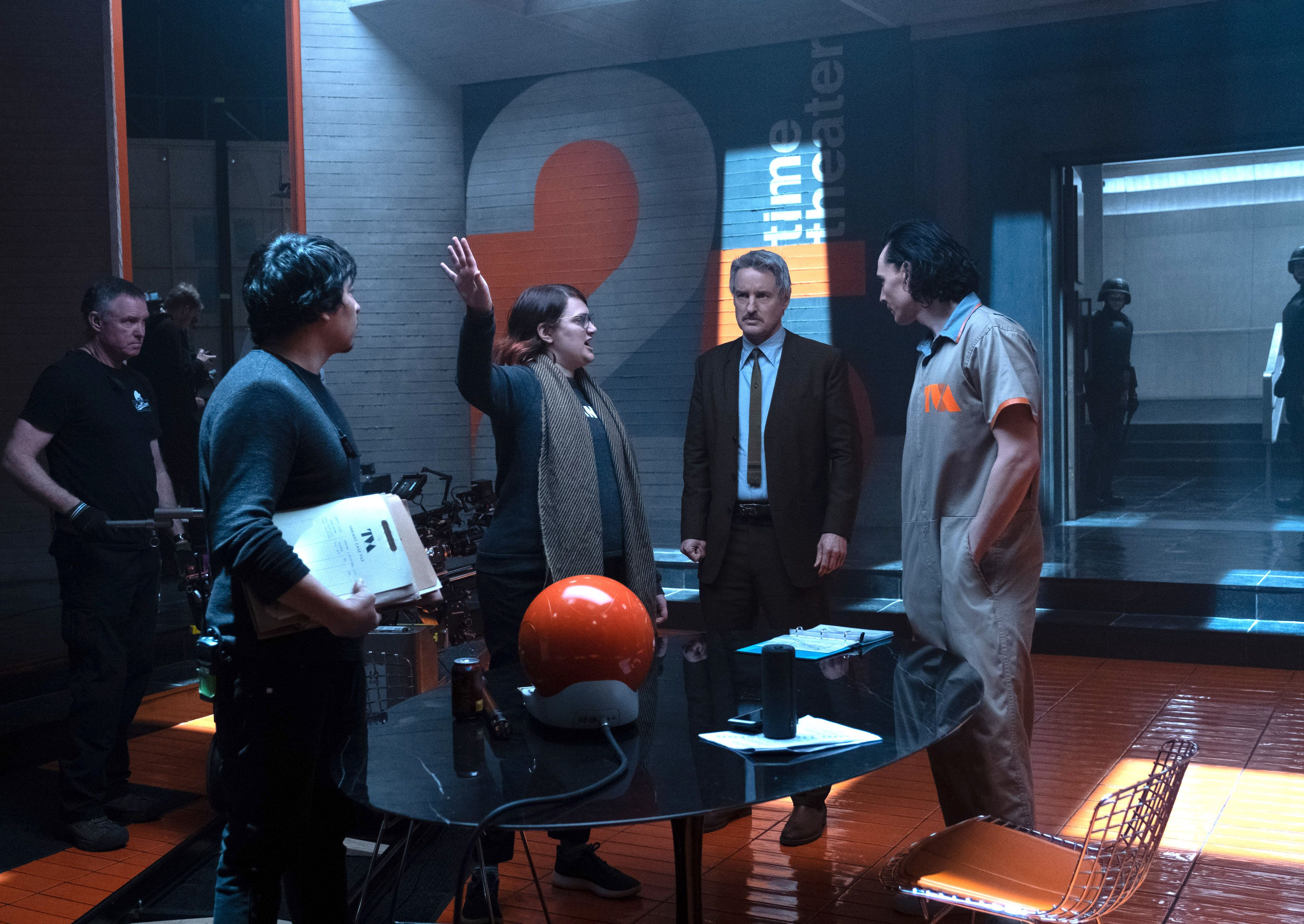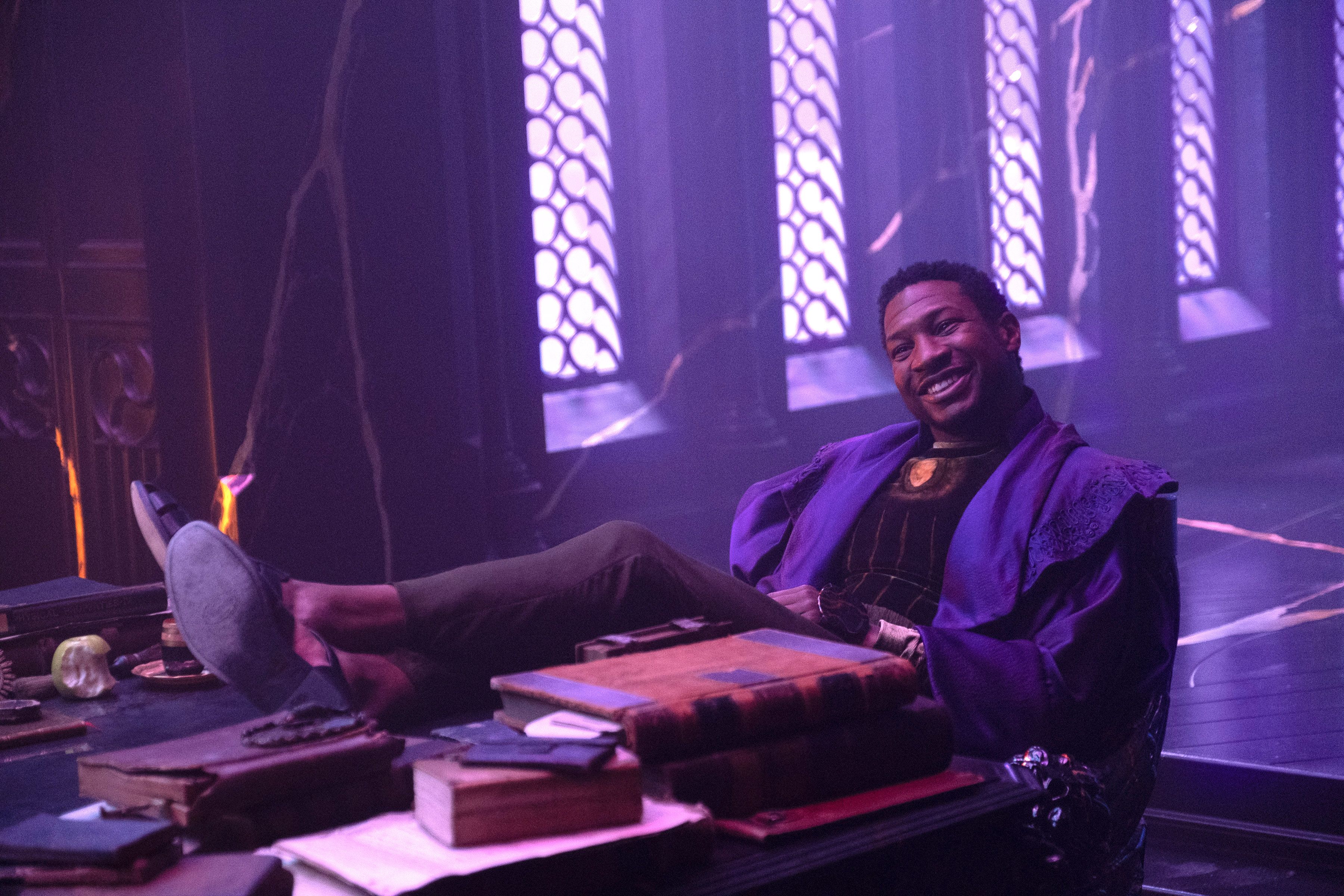If she could turn back time, there isn’t much Loki director Kate Herron would do differently. She transformed a beloved side character into a protagonist. She blessed Marvel fans with their first canonically bisexual character. And she introduced the multiverse, drafting up perhaps one of the biggest cliffhanger reveals since the end of Avengers: Infinity War. In other words, Herron’s Loki was a humongous deal, even by Marvel’s increasingly oversized standards.
Still, it’s not easy for the director, who’s also known for her work on Sex Education, to hand off the reins. Herron has revealed to press that she has no plans to return for Loki season 2, preferring to leave the chaos of the multiverse to the whims of another. Marvel just keeps getting bigger and bigger, and she has other characters to conquer. But the MCU will continue to feel her impact for years to come, should the studio’s Phase 4 become a Phase 5, 6, 7 and 8.
After Loki season 1’s momentous finale—in which Jonathan Majors appears for the first time as a variant of Kang the Conqueror, named He Who Remains—ELLE.com grabbed some time with Herron to learn what went into such a carefully crafted reveal. And the director took a few moments to say goodbye.
When you first signed on for this show, did you have a solid understanding of how important it would end up being to the future of the Marvel Cinematic Universe?
I knew from day one. I think we were always ironing out story in the sense of, we wanted to get there in the best way. But it was always the intention that they would meet He Who Remains at the end and the multiverse would be born. So I knew that massive secret going into it, yes, and I’m very honored that I got to be part of launching that part of the next phase.
How does the larger Marvel plot structuring process work? Do you have the, uh, overlords breathing down your neck as you’re developing the story? Do you have a point A to point B you need to establish but the rest is yours to orchestrate?
I would say [Marvel Studios president] Kevin Feige, his whole company is very collaborative. He has his plan and his design for where he wants the films and the TV shows to go with these characters, but it’s really a collaborative studio. And it’s generally I think always a case of ”best idea wins.” None of the creative team ever felt we were being restrained. On our show, we had a producer called Kevin Wright who was an executive at Marvel, and he essentially was steering the Marvel side of things and making sure that, yeah, we weren’t venturing places we couldn’t, but also he was so key in the story as well.
Before I ask you anything else, I have to know the story behind Alligator Loki.
[Laughs] That was from the writer’s room. The alligator was there from day one. I think for me, as a director, the tightrope was always, “Okay, well, we have to give this alligator moments where it could be [seen] as a Loki,” and most of the moments were actually like, ”No, man, that’s an alligator.”
I just thought it was so funny, and I loved it. And I loved as well how [Richard E. Grant] played it—it’s how we talk to pets, like, “Oh, they feel like this,” and the owner would be like, “Well, no, that’s not what they’re saying.” That felt very real.
Were you always a fan of the character of Loki or has your love for him developed more recently?
I’ve always been a fan. It’s how I got the job because I saw Tom [Hiddleston] in Thor, and I was like, “Oh, this is such an interesting interpretation of the character.” I was just so excited with what Kevin Feige was doing with him in the MCU, and I think Tom’s performance brought such empathy and wit and charisma to this amazing character. But at the same time I loved the vulnerability there and the pain. It was so exciting to me watching him go from villain to antihero over the last 10 years. So when I found out they were making a show about Loki, I was very determined to get in the room for it, and they luckily met me and here I am. I would say I chased heavily after it as a Loki fan.
How much of Loki’s character development came from you, and how much was from Tom?
Something with Tom that was always really key is that he knows Loki so well. He’s been playing him for the last 10 years. When we were filming the time theater in episode one, for example, me and him would talk about The Avengers—because this is the god from New York, and he’s very different from where we take him in episode six.
I have an “emotion Bible” I wrote when I was working on the show to help me track where characters were at different points in the story. With Tom—for example, that speech he gives to Sylvie at the very end of the show? That was something we were working on right up to the day we filmed it. The line, “I just want you to be okay,” that came from Tom. I love that the Loki we have at the end doesn’t want the throne, when in episode one he does.
Something that I thought was cool that I wanted to bookend was: The first thing said to Loki in our show is, “Who are you?” And we end on the same line as well at the very end: “Who are you?” And I think that’s sort of the big question of the whole show.
What was it like directing Jonathan Majors in what will likely be several if not many MCU appearances?
On the one hand, yes, as a fan I’m like, “Oh wow, this is a big responsibility.” But I think the fun thing in [He Who Remains] being a variant—which alleviates some pressure, not all pressure, but some pressure—is that he’s a variant of his own kind, so he’s He Who Remains. He’s not Kang.
Working with Jonathan, he’s one of the greatest actors out there. So I think, for me, it was just about giving him the space to play. He improvised a lot of lines around the wonderful script. Even in his clothes by Christine Wada, I loved that you can’t necessarily place his outfit in time or a specific culture because he’s this character that’s lived across so many different lives. But also the clothes have a pajama-like quality to them because he lives at home. So I think, in the hands of an actor like Jonathan, that’s just really fun, working out where do we go big and where do we make it small and draw the audience in.
A big theme in the first season was, “What’s the right thing to do? Between two evils, which is the greater?” Did you want all of your characters to exist in that moral gray area?
Yes, something that was always important to me across the show was this idea of good and evil and gray area. For example, Mobius and Sylvie had that conversation in the car in episode five, and she’s like, “You hunted me like a dog.” And he thought it was for the greater good. But he still has done things that are not completely good, and I think that’s what’s so key to all the characters. Renslayer when she deletes Mobius? I didn’t want it to be like a “villainous” time. Because it’s not; he’s her friend, and [pruning him] is more complicated than that.
She has that amazing moment with [Mobius] in episode six where she’s like, “You betrayed me.” And I completely agree with her! He betrayed their friendship, and he sided with Loki, and when she’s making these decisions she does think it’s for the sake of the Sacred Timeline. So I’m excited to see where she’ll be going.
It’s been fun watching this show become a cultural talking point. As each episode has dropped, there’s usually been something that has created a stir online. The big news of Loki and Sylvie and their variants being bisexual—was that something that you went in knowing would spark a huge reaction from fans?
It was important to acknowledge because it’s founded in the comics. Loki has been written as bi, he’s also been written as pan, and it just felt like this is a show about his identity, so let’s acknowledge it and make it canon. You can never predict how people are going to feel, but we assumed that probably there’d be discussion around it just because it is a big moment for him.
You’ve announced that, though the series is headed for a second season, you have no plans to be involved. So as you leave these characters in another’s hands, what are your hopes for them?
So there’s a shot of Loki in episode six that was so important to me. It’s toward the end when [Sylvie has pushed him back through the TemPad portal] and we push in really slowly on him because he’s gone on this amazing journey. He found someone he connected with, and he looks heartbroken. But it was important to show that “Lokis always survive,” and so you have that moment where he collects himself and thinks, No. I still have fight. And I’m going to fight.
So, for me, I’m excited to see, where is Loki? Where are they going to take him? We’ve done so much groundwork in his character, I’m just excited because I feel like there’s so much more about his identity to be explored.
And then all these amazing other characters we have: Where did Ravonna go? Who is B-15? Where are Mobius and Sylvie? We leave her in the Citadel, and she looks shell-shocked and full of pain, and she’s on a much earlier part of her journey [than Loki] in terms of self-healing, so I think it’ll be really fun to see where she ends up going. I’m really proud to have been part of Loki’s story. I gave it everything in my heart and my soul. I’m excited to see what fresh eyes will bring.
This content is created and maintained by a third party, and imported onto this page to help users provide their email addresses. You may be able to find more information about this and similar content at piano.io
By:








